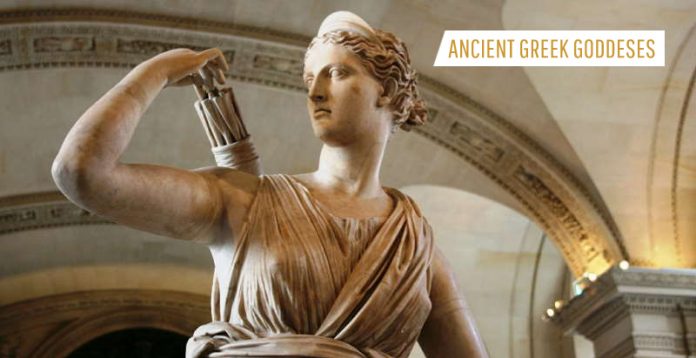Most folks are conscious of the heroics of the traditional Greek gods. The goddesses from Ancient Greek mythology are not any smaller in terms of recognition and symbolic significance. A bit like the Olympian gods, most of the traditional Greek goddesses resided within the heavens’ realms above Olympus (though there have been quite a few exceptions too). Goddesses had special powers and will control specific aspects of life. Since the motherly Rhea who dared to trick her husband into saving lots of her children, to the goddess of wisdom Athena or the queen of gods Hera, who was much revered by both gods and mortals, the traditional Greek goddesses were the maximum amount of a divine force to be reckoned. There is a list of the highest 10 Ancient Greek goddesses: Here you go!
10. Hestia
Also referred to as the fireside’s traditional Greek goddess, Hestia was the eldest among the primary Olympian siblings, her brothers being Poseidon, Zeus, and Hades. It’s believed that there have been three virgin goddesses in Ancient Greek mythology, and Hestia was one among them – the opposite two being Athena and Artemis. Apollo and Poseidon relentlessly pursued her since they both desired to marry her. But she kept the oath that she had made to Zeus that she would forever remain pure and undefiled and never entered into a marital union with a person. She symbolized the heat of a house from the burning fire within the hearth. Most of the traditional Greeks believed her to be the divine representation of tranquility during everyday domestic life.
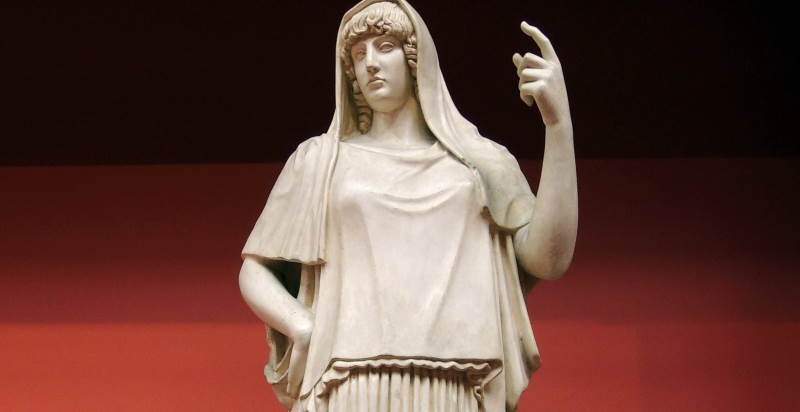
9. Hebe
The youngest girl of Zeus and Hera, Hebe was considered the divine personification of everlasting youth and wonder. Being the mistress of endless elegance and charm, she is labeled because Greek mythology’s goddess of youth. Her name itself means “youth” within the Greek language, and lots of believed she could even restore youthfulness to the old. She later married the favored demigod Hercules and had two kids with him – Anicetus and Alexiares.
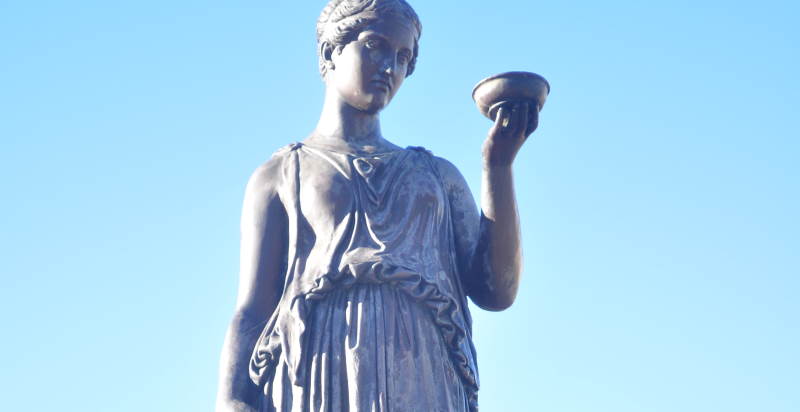
8. Nemesis
As the name suggests, Nemesis was the god of retribution. She would perform judgment and inflict punishments upon those that perpetrated evil against others or amassed luck that they didn’t deserve. Also referred to as the god of revenge, she represented the results one had to face for every single felony. For this reason, many worshiped her because of the very personification of all life’s repercussions for sin. Nemesis was never known to guage crime and criminals connected to non-public vendettas. She would rather scrutinize each man’s overall situation before deciding what he should receive – a reminder of happiness or tons of retribution.
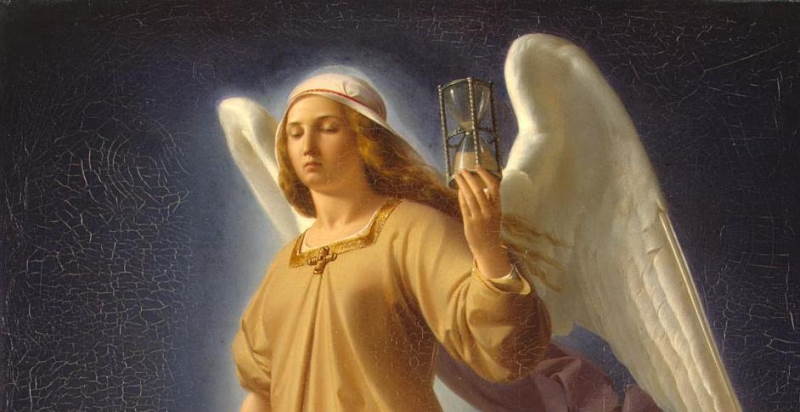
7. Leto
Leto was one ancient and, as many would argue, the mighty Zeus’s favorite lover. But she is far better known for her struggling years of motherhood and is taken into account because of motherhood’s goddess. Zeus and Leto were deeply crazy, and Leto had already given him children way before Zeus married Hera. But that didn’t lessen Hera’s anguish as she visited great lengths to bring utter despair upon a pregnant and helpless Leto. Eventually, Leto gave birth to the dual deities Artemis and Apollo. She successfully formed her name into Greek mythology as a modest, motherly, and revered figure.
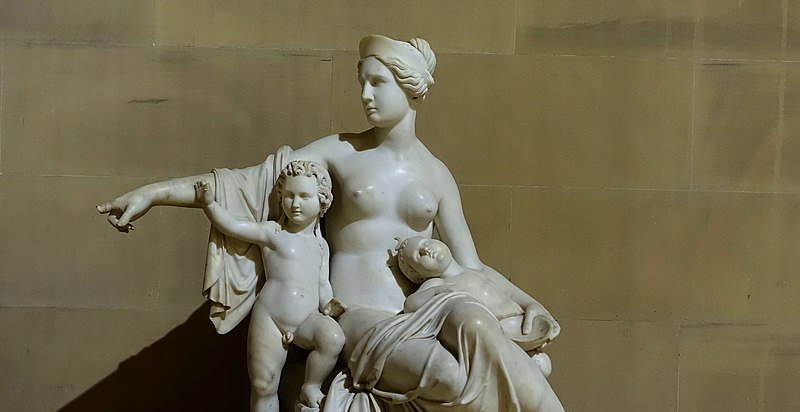
6. Rhea
Within the Titans’ age, Rhea was Kronos’s wife, another Titan who dethroned his father Uranus to make the new ruler, effectively making Rhea queen. Rhea is understood to possess born to Olympian gods’ primary generation – Hestia, Hades, Poseidon, Hera, and Zeus. For this reason, she is usually called the mother of gods – a title much more deserving than her predecessor goddesses like Cybele and Gaea. She further reinforced this title when she gathers the much-needed courage to trick her own husband Kronos to save lots of her children.
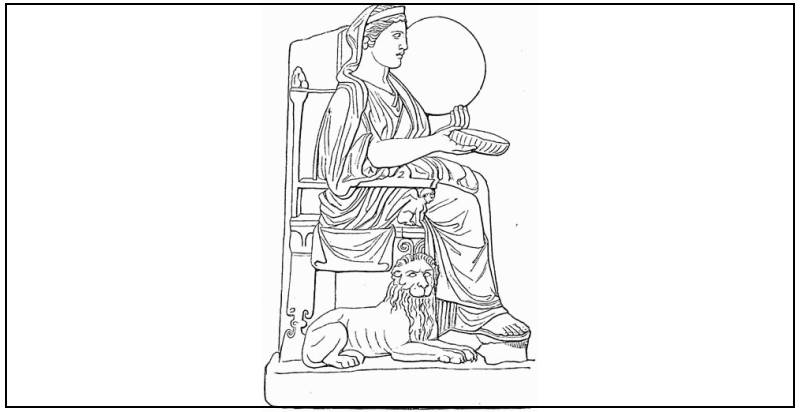
5. Aphrodite
Popular in Greek mythology because the most beautiful deity whose angelic appearance could charm even the toughest of hearts, she possessed the title of goddess of love, beauty, and desire. Besides her amazing beauty, she also had the facility to ignite love and desire among gods, mortals, and even the birds and beasts. She was also said to possess a task within the natural cycle of the death, birth, and rebirth of living beings and all mortals in nature. Aphrodite was the divine personification of the will and unity.
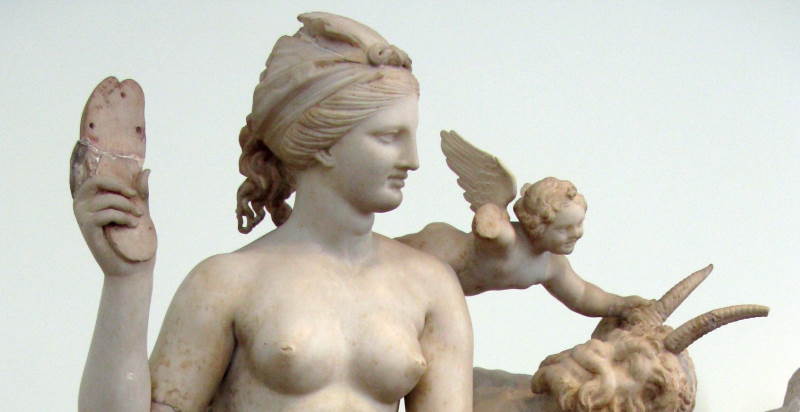
4. Demeter
Kronos and Rhea were the two prominent daughters. Being the goddess of grain and harvest, she was given status in Ancient Greek mythology. Albeit she was one of the primary Olympian gods, she took a very different path from other contemporary Olympians. She denied being confined to the realms of Olympus and visited the temples dedicated to her by her followers. She lived on the brink of those that worshiped her, and in some ways, trusted her. She has always had a considerable following among mortals since she had the facility to bless them with rich harvests. She or he also created the seasons that were favorable for the planting of crops.

3. Artemis
Apollo’s twin sister and therefore the bastard of Zeus and Leto, Artemis is popularly referred to as the goddess of hunting and, therefore, the natural environment, among other things. Where Apollo preferred twiddling with the strings of a lyre, she preferred plucking the cords of her bow and set herself up as a gifted archer and skillful huntress. When she was born, she was skilled enough to help her mother Leto give birth to her brother Apollo and deservedly earned the title of protector of childbirth and labor.

2. Hera
Also referred to as the goddess of birth and marriage, Hera was the wife of Zeus, by extension, moreover the queen of all gods. Being the divine depiction of marriage, she always showed an interest in protecting married women and preserving the sacred bond created when two souls were bound together in matrimony. But she had a particularly tough time keeping Zeus for herself, and he had countless extramarital affairs. Hera ruled over the heavens and, therefore, the mortal world long before her marriage to Zeus. The queen of gods was destined to stay forever jealous and plotting revenge upon Zeus’ love interests.
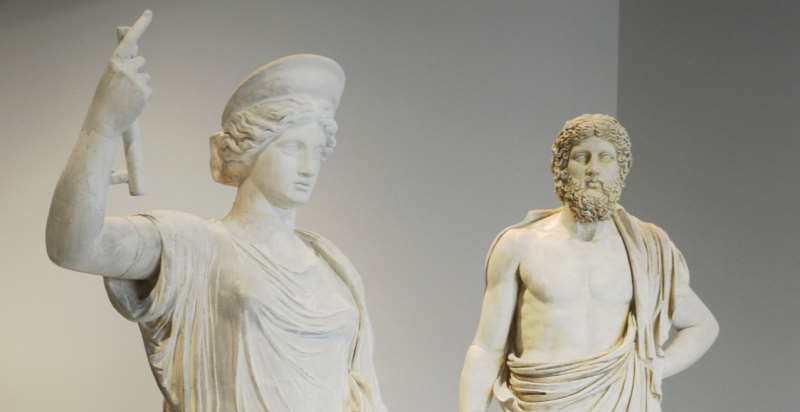
1. Athena
At the highest of the list comes the goddess of wisdom, reasoning, and intelligence – Athena. She was a singular deity with unfathomable popularity among gods and mortals. Her birth was far from ordinary as long as her mother didn’t technically give birth to her. Her mother was Metis, who Zeus swallowed while she was pregnant due to a prophecy that the kid Metis was getting to bear would become the lord of the heavens. But when it had been time for Athena to change state, Zeus began to complain of a huge headache. Athena then sprang from his head, adult and wearing armor. The sheer scale of power she had over the mortal world is clear from the very fact that the town of Athens took its name after her.

Conclusion
The Greek goddesses represented the female aspect of Ancient Greek mythology. At an equivalent time, each goddess also personified different aspects of life. These goddesses justified their status as members of the Olympian family due to their angelic personas and complemented their male counterparts with their divine presence. Other than that, if you want to know more about the god and goddess of hindu religion or roman god, you will get all details here.
